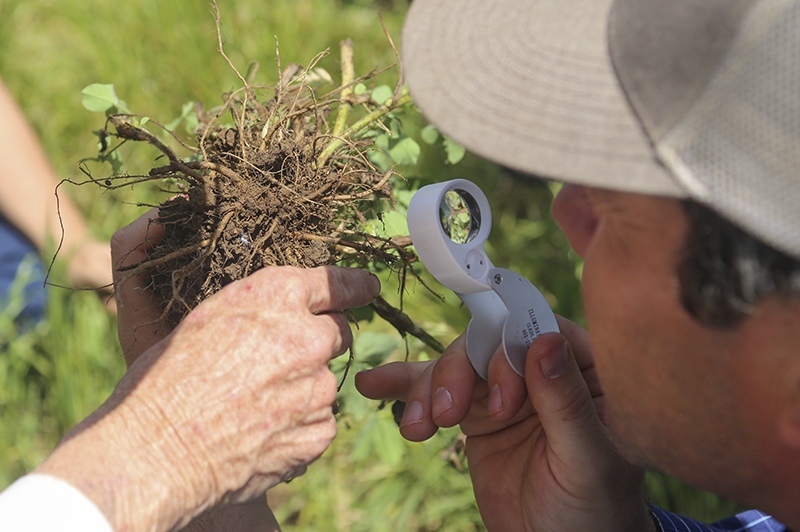
MS Interdisciplinary Studies: Regenerative Agriculture
Study Regenerative Agriculture as an emphasis within the Interdisciplinary Masters Degree Program

The Interdisciplinary Masters Degree program allows students to build a tailor made graduate program that will support learning and research in the field of Regenerative Agriculture. It is an interdisciplinary approach, drawing from Agriculture, Environmental Sciences, Nutrition or Communications and Education. Students create their own program by identifying 30 units of graduate and senior level courses from the course catalog together with an advisory team of faculty. All students will take AGRI 490 Experimental Design and 6 units of Thesis Units.
Our students are involved in research related to Regenerative Agriculture. Master's thesis projects vary depending on the student, and can be of their own design, or follow the design of a funded research project already underway. Students interested in conducting research and completing an MS Interdisciplinary Studies degree in Regenerative Agriculture are encouraged to visit with one of the faculty affiliates about available projects.
The MS Interdisciplinary Studies: Regenerative Agriculture is open to students with a BS or BA degree. Please apply through the Graduate School at CSU Chico Graduate Studies program. Also be sure to learn more about the Interdisciplinary Masters program(opens in new window) and fill out the appropriate forms on that page.
For more information contact Dr. Cynthia Daley(opens in new window) or Raquel Krach(opens in new window)
 Our students are innovative and enthusiastic! Regenerative agriculture attracts future (and present) ranchers and farmers, researchers, environmentalists and conservationists, technical service providers, and others who wish to amplify the importance of this work in the wide world. Learn more about the students who have joined our program, what they are focusing on, and hope to do next.
Our students are innovative and enthusiastic! Regenerative agriculture attracts future (and present) ranchers and farmers, researchers, environmentalists and conservationists, technical service providers, and others who wish to amplify the importance of this work in the wide world. Learn more about the students who have joined our program, what they are focusing on, and hope to do next.
